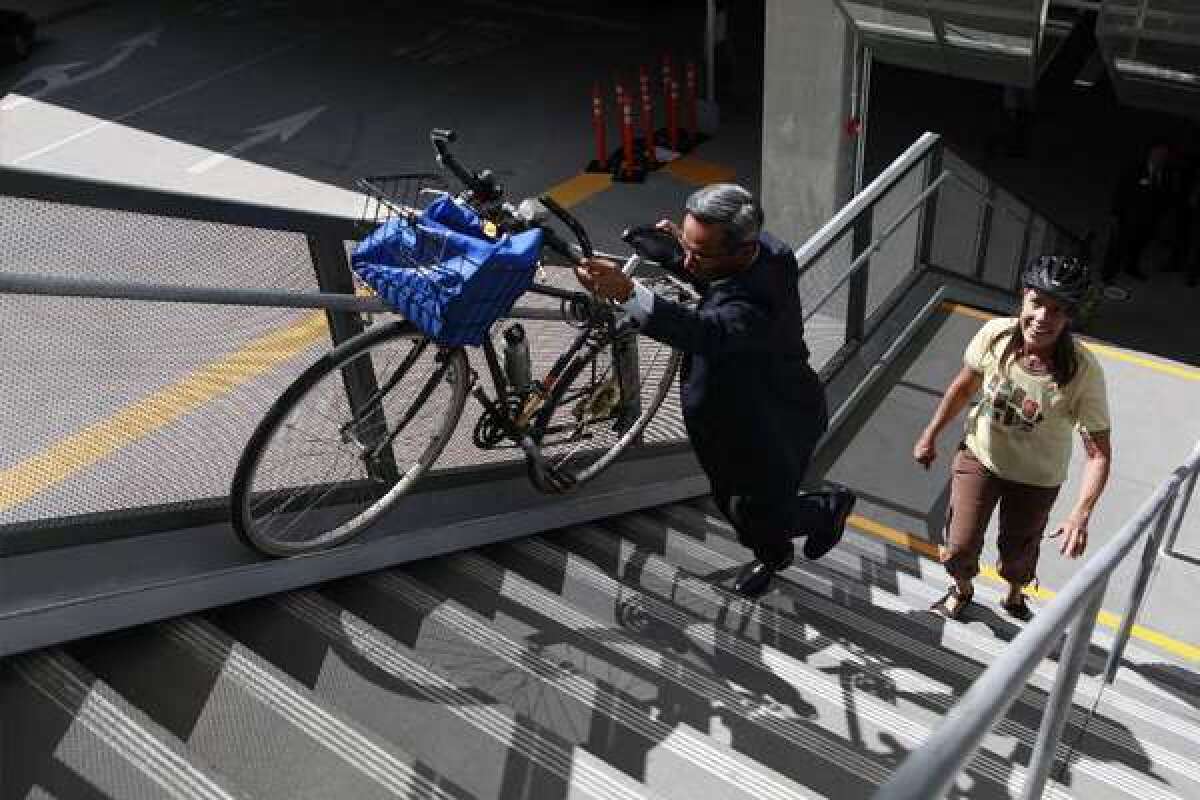Young people driving less, transportation planners clueless, report says

- Share via
Millennials are possibly the first generation who could sing the Beatles classic “(Baby You Can) Drive My Car” and really mean it.
Millennials are the children of baby boomers and Generation X, and they are radically altering the way the nation connects, warns a new report by U.S. PIRG, the national office of the Public Interest Research Group.
The driving miles logged by those ages 16 to 34 in 2009, for example, was 23% lower than it was for the same age group in 2001, according to the report.
PHOTOS: Kelley Blue Book’s 10 best green cars for 2013
The report, titled “A New Direction: Our Changing Relationship with Driving and the Implications for America’s future,” has serious implications for the nation’s transportation funding, which relies heavily on gasoline and diesel tax revenues.
Driving less mean buying less gasoline and diesel, which means there is less to tax.
At the same time, the U.S. PIRG report says that federal government projections on future driving trends are too optimistic.
“The crystal balls still assume that the driving boom is on and will continue. That’s the thinking that needs to change,” the report’s coauthor, Phineas Baxandall, said in an interview.
Baxandall is a senior analyst for tax and budget policy for CalPIRG, the research group’s California affiliate.
Add in other factors such as the rising fuel economy of new cars and the winding down of the driving careers of the baby boomer generation, and revenues from fuel taxes could fall by 70% by 2040, Baxandall said.
“This is crucial from a public policy standpoint and people haven’t been paying close attention,” Baxandall said.
The report said the nation’s driving boom ended way back in 2004.
From 1946 to 2004, the growth in miles driven came from the baby boom generation, cheap fuel, suburban expansions that led to long commutes, and women reentering the workforce, the report said.
By contrast, millennials are more socially connected online, have a severe aversion to high fuel prices and prefer close-in city living, the report said.
Millennials so far are also showing a preference for “a walkable lifetyle” and public transportation.
Baxandall said the trend suggests more money should be invested in public transit projects and less on freeway expansions.
ALSO:
The true cars of ‘The Great Gatsby’ era
Camp Pendleton will open it gates for rare car classics
Honda to boost Acura brand, build new NSX supercar in Ohio




